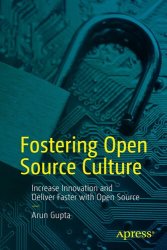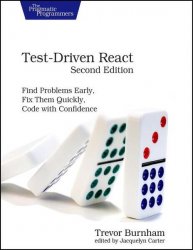 Название: Data Science for Civil Engineering: A Beginner's Guide
Название: Data Science for Civil Engineering: A Beginner's GuideАвтор: Rakesh K. Jain, Prashant Shantaram Dhotre, Deepak Tatyasaheb Mane
Издательство: CRC Press
Год: 2023
Страниц: 251
Язык: английский
Формат: pdf (true)
Размер: 17.7 MB
This book explains use of Data Science-based techniques for modeling and providing optimal solutions to complex problems in civil engineering. It discusses civil engineering problems like air, water and land pollution, climate crisis, transportation infrastructures, traffic and travel modes, mobility services, and so forth. Divided into two sections, the first one deals with the basics of Data Science and essential mathematics while the second section covers pertinent applications in structural and environmental engineering, construction management, and transportation.
The basic goal of Data Science is to find the proper patterns in the data that has been acquired or collected. To evaluate the data and gain insights from it, a variety of statistical methodologies are used. Data scientists must inspect their data throughout the process, from data extraction to backbiting and preprocessing. A data scientist’s other responsibilities include developing predictions based on the data. Data scientists are tasked with drawing inferences from data. Data scientists can use these insights to assist firms in making more informed and efficient business decisions.
Data Science is a field of study that involves the use of a variety of processes, scientific methods, and algorithms to extract ideas from vast amounts of data. It aids in the discovery of hidden patterns in raw data. The evolution of mathematical statistics, large data, and its meaningful analysis has given rise to the Data Science field. Data Science is a multidisciplinary field that allows you to extract knowledge from both structured and unstructured data. The use of Data Science is to convert a business/real problem into a scientific attempt, and then provide a real solution. Data science comprises scientific methods to study huge amounts of data (structured and unstructured) and that entails extracting relevant insights.
A data scientist uses a wide range of tools and techniques to spot duplicate patterns in data. Python, Hadoop, SQL, and R, and are just a few of the tools available. Data scientists are typically hired as consultants, where the role is to help with different processes and development of strategy. To put it another way, data scientists help firms make better business decisions by extracting relevant insights from data. Companies such as Google, Netflix, and Amazon, for example, are utilizing Data Science to generate erudite recommendation systems for their customers/users. Predictive analytics and forecasting approaches are also being used by a number of financial firms to forecast stock prices. Data science has aided in the development of smarter systems capable of making autonomous judgments based on past data. It has manifested itself to construct a larger picture of Artificial Intelligence through its integration with developing technologies such as computer vision, natural language processing, and reinforcement learning.
Features:
Details information on essential mathematics required to implement civil engineering applications using Data Science techniques.
Discusses broad background of Data Science and its fundamentals.
Focusses on structural engineering, transportation systems, water resource management, geomatics, and environmental engineering.
Includes Python programming libraries to solve complex problems.
Addresses various real-world applications of Data Science based civil engineering use cases.
This book aims at senior undergraduate students in Civil Engineering and Applied Data Science.
Скачать Data Science for Civil Engineering: A Beginner's Guide
[related-news] [/related-news]
Комментарии 0
Комментариев пока нет. Стань первым!















